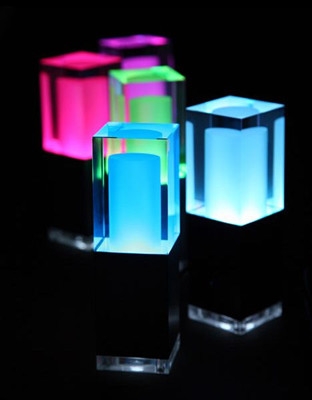Our homes glow at night.
每当夜幕降临我们的房间总是灯火通明。
Light bulbs, TVs, and now computers, e-readers, tablets and smartphones expose people to an increasing amount of light after dark.
天黑之后电灯、电视、电脑、电子阅读器,笔记本电脑和智能手机使人们暴露在越来越多的光线之中。
And the color of that light may influence mood and brain function.
然而光的颜色可能会对心情及大脑功能造成影响。
That’s according to a study in the Journal of Neuroscience.
这是根据神经科学期刊的一项研究所得出的结论。
 Researchers looked at the role of specialized photosensitive cells in the retina.
Researchers looked at the role of specialized photosensitive cells in the retina.
研究者们研究视网膜内特别的光敏细胞。
The cells, called ipRGCs, are responsible for regulating circadian rhythms.
这些叫做ipRGCs的细胞负责调节昼夜节律。
And recent evidence suggests these cells may also play a role in mood and cognition.
而最近的证据表明这些细胞可能也对情绪和认知起到作用。
To test how nocturnal lighting color affects mood, the researchers exposed hamsters to nighttime conditions of no light, red light, white light or blue light for four weeks each.
为了测试夜间光颜色如何影响心情,研究者们将仓鼠放到没有光,红色光,白色光或蓝色光的夜间条件下进行各4周的研究。
Hamsters exposed to red light at night had the fewest brain changes associated with depression in humans, while blue and white light had the worst effects on mood.
在夜间暴露于红色光下呈现最小大脑变化的仓鼠和人类的抑郁症有关,而蓝色和白色的光对于情绪有最坏的影响。
So late-night work email may not be the only thing ticking you off—the blue glow of your machine may also be getting you down.
所以深夜工作的电子邮件可能不是唯一斥责你业绩不佳的托词,你的机器闪烁的蓝色光芒也会让你感到失望。
The best bet: shut down and get some shuteye.
最好的解决办法:干脆关机合一会儿眼。












